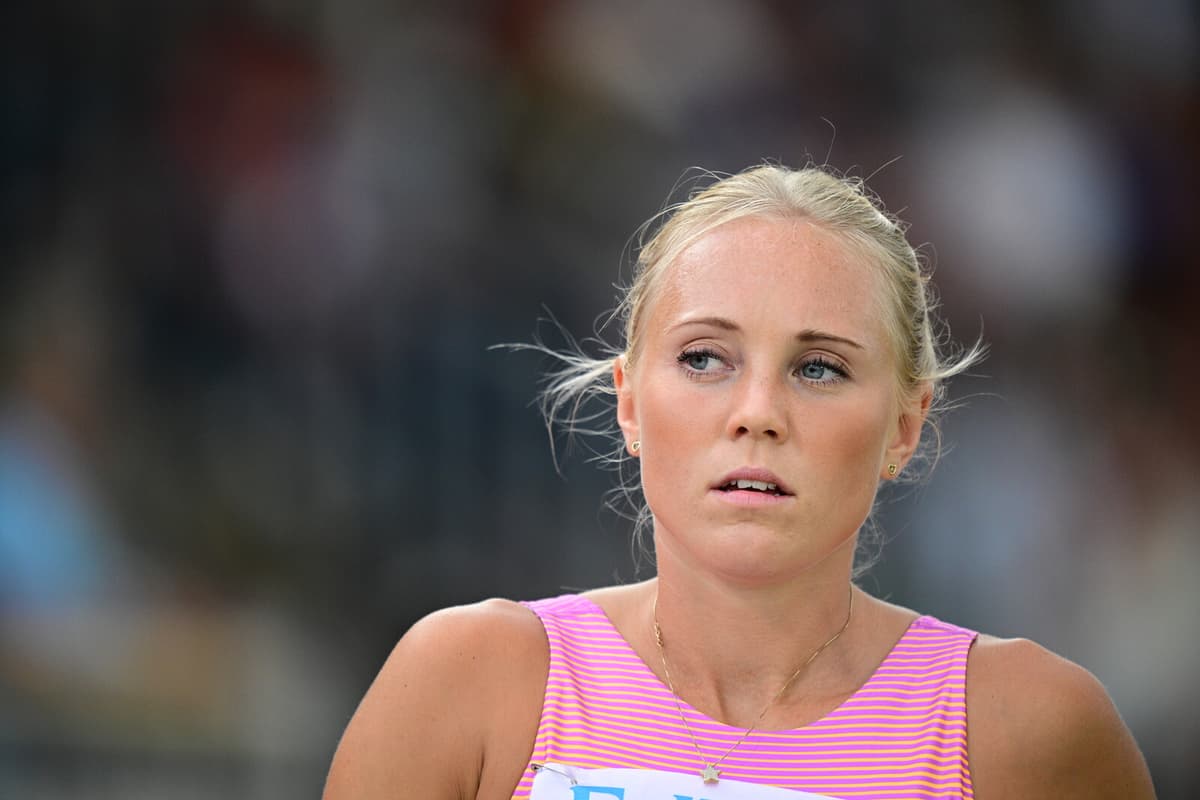International Athletics Federation's (World Athletics) decision to reintroduce sex testing has resulted in mixed reactions. Some believe that the tests constitute an invasion of personal integrity, that it cannot be guaranteed that they are completely correct – others are positive and see it as a step towards fair competition classes.
I personally do not think it feels strange, stressful or uncomfortable, says national team profile Tilde Johansson. As an athlete, you want fair sports. I hope that people respect the rules and do not stress themselves out over it being tough, this is to protect the women's class, not eliminate or point out people.
Biological differences
Why are the tests needed?
There has been a discussion about some having more biological advantages and it is difficult to draw the line. It is biological grounds that distinguish us, women and men. If you have more of it (testosterone), it is clear that it affects the results, even if it is not everything.
She continues:
I hope that young girls do not see it as tough and take a step back from the sport. As I understand it, we do a simple saliva test once and I hope it becomes a norm, just as natural as doping tests.
A noted case in athletics is that of the South African runner Caster Semenya's high testosterone levels. There, the legal trials have been ongoing for almost ten years. Since World Athletics (WA) introduced new testosterone rules in 2019, the Olympic Games and World Championship gold medalist on 800 meters has not been able to run the distance because she does not want to lower her testosterone levels.
"Fair competitions"
The Swedish World Championship delegation welcomes sex testing.
It is the same as the anti-doping work, says Sweden's national team captain Kajsa Bergqvist. All athletes, for example, must report where they are at all times. It is clear that it also infringes on the athletes' integrity to always report where they are. But it is a price that athletes are generally willing to pay to have fair sports.
Sex tests have existed before in athletics, but were replaced around the turn of the millennium entirely with tests of testosterone levels because the old methods were considered, among other things, unreliable. Now they are back – and if they can be done in a safe way, it is something good, the national team captain means.
It is fundamentally positive that WA sees that the women's competition class should be defended and that there will be fair competitions.
The discussion about whether people who were born in a legal sex and during their lifetime changed to another should be allowed to participate in sports has been going on for a long time.
Different federations have made different decisions on the issue over the years. For example, the international athletics federation stopped trans people from participating in women's classes in 2023. There is also a ban on trans people participating in women's classes in cycling competitions.
In swimming, a person who was born as a man but has undergone a sex correction before the age of twelve can compete against women. The International Paralympic Committee allows people who are legally women to participate in the events where they are qualified in terms of disability.
The issue has recently gained new momentum since President Donald Trump signed a decree in February that stops trans people from competing in women's and girls' competitions in the USA. This resulted in the US Olympic Committee choosing to stop all trans women from competing in women's sports.






